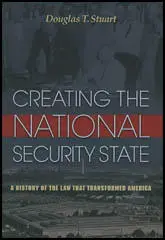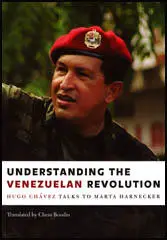Spartacus Review
Volume 17: 28th April, 2008
Modern Politics

Title: Creating the National Security State
Author: Douglas T. Stuart
Editor:
Publisher: Princeton University Press
Price: £19.95
Bookshop: Amazon
Spartacus Website: CIA
Category:
For the last sixty years, American foreign and defense policymaking has been dominated by a network of institutions created by one piece of legislation - the 1947 National Security Act. This is the definitive study of the intense political and bureaucratic struggles that surrounded the passage and initial implementation of the law. Focusing on the critical years from 1937 to 1960, Douglas Stuart shows how disputes over the lessons of Pearl Harbor and World War II informed the debates that culminated in the legislation, and how the new national security agencies were subsequently transformed by battles over missions, budgets, and influence during the early cold war.Stuart provides an in-depth account of the fight over Truman's plan for unification of the armed services, demonstrating how this dispute colored debates about institutional reform. He traces the rise of the Office of the Secretary of Defense, the transformation of the CIA, and the institutionalization of the National Security Council. He also illustrates how the development of this network of national security institutions resulted in the progressive marginalization of the State Department. Stuart concludes with some insights that will be of value to anyone interested in the current debate over institutional reform.

Title: Understanding the Venezuelan Revolution
Author: Marta Harnecker
Editor:
Publisher: Monthly Review Press
Price: £8.00
Bookshop: Amazon
Spartacus Website: USA Politics
Category:
Marta Harnecker’s interviews with Hugo Chávez began soon after one of the most dramatic moments of Chávez’s presidency—the failed coup of April 2002, which ended with Chávez restored to power by a massive movement of protest and resistance. In the aftermath of the failed coup, Chávez talks to Harnecker about the formation of his political ideas, his aspirations for Venezuela, its domestic and international policies, problems of political organization, relations with social movements in other countries, and more, constantly relating these to concrete events and to strategies for change. The exchange between Harnecker and Chávez—sometimes reflective, sometimes anecdotal, always characterized by their passionate commitment to the struggles of the oppressed—brings to light the process of thought and action behind the public pronouncements and policies of state. The interviews are supplemented by extracts from Chávez’s most recent pronouncements on the ongoing transformation in Venezuela and Latin America, an analysis by Harnecker on the role of the military, and a chronology.

Title: Humanitarian Imperialism
Author: Jean Bricmont
Editor:
Publisher: Monthly Review Press
Price: £12.50
Bookshop: Amazon
Spartacus Website: USA Politics
Category:
Since the end of the Cold War, the idea of human rights has been made into a justification for intervention by the world's leading economic and military powers - above all, the United States. The criteria for such intervention have become more arbitrary and self-serving, and their form more destructive, from Yugoslavia to Afghanistan to Iraq. Until the U.S. invasion of Iraq, the large parts of the left was often complicit in this ideology of intervention - discovering new "Hitlers" as the need arose, and denouncing antiwar arguments as appeasement on the model of Munich in 1938. Jean Bricmont's "Humanitarian Imperialism" is both a historical account of this development and a powerful political and moral critique. It seeks to restore the critique of imperialism to its rightful place in the defense of human rights. It describes the leading role of the United States in initiating military and other interventions, but also on the obvious support given to it by European powers and NATO. It outlines an alternative approach to the question of human rights, based on the genuine recognition of the equal rights of people in poor and wealthy countries. Timely, topical, and rigorously argued, Jean Bricmont's book establishes a firm basis for resistance to global war with no end in sight.
